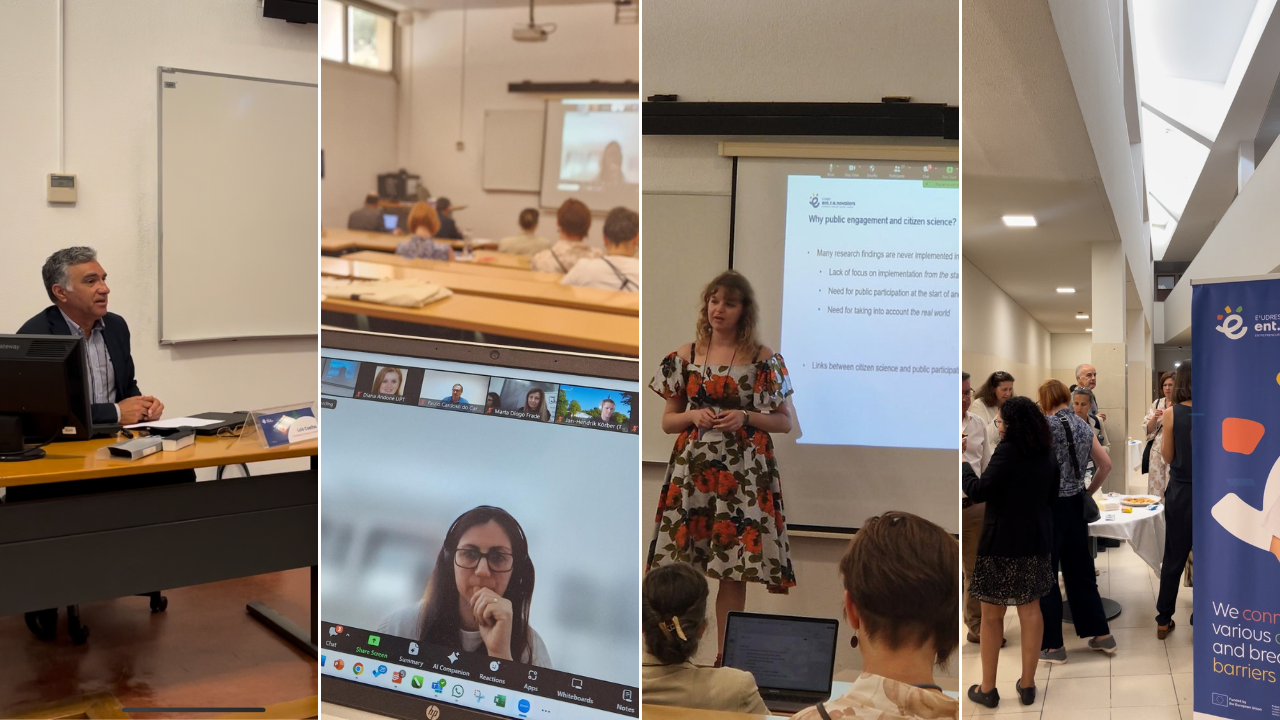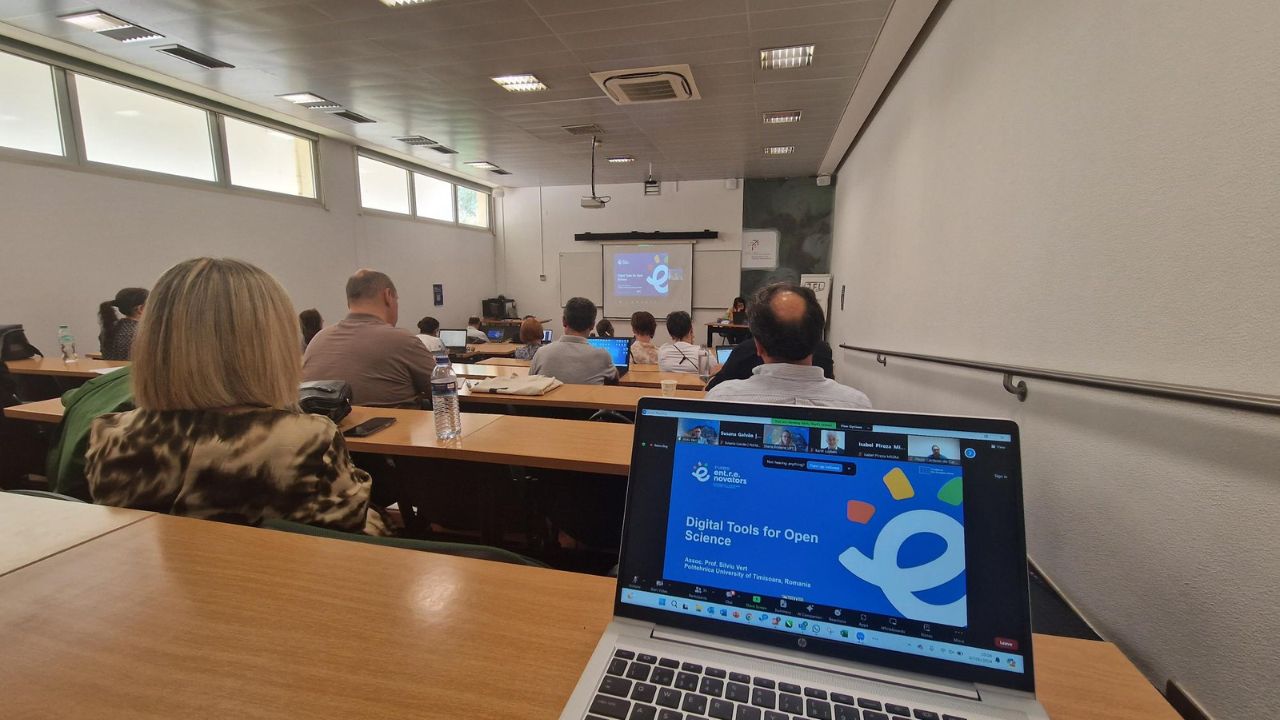Missed the Workshop? Watch the full session now here
On June 7, 2024, the E³UDRES² Ent-r-e-novators project held a hybrid international workshop entitled “Open Science and Open Education”. The event, held at the Polytechnic University of Setúbal (IPS), was attended by several project partners, members of other international alliances and other guests. This conference reinforced the project's commitment to promoting innovation and collaboration between European higher education institutions and to discussing and promoting open science and education practices.
The event began at 9:00 am with an introductory presentation by Luís Coelho, professor at IPS and coordinator of the E³UDRES² Ent-r-e-novators project, which aimed to highlight the objectives and main results achieved so far by the project. This was followed by a speech by Karel Luyben, president of the European Open Science Cloud Association, who discussed the importance and benefits of the European Open Science Cloud, an initiative that aims to promote open science through an integrated infrastructure of accessible scientific data. Silviu Vert, a digital technology expert from the Polytechnic University of Timisoara, presented various digital tools that facilitate the practice of open science, providing more efficient access and collaboration between researchers. Radu Vasiu and Liviu Marsavina, both professors at the Polytechnic University of Timisoara, shared their experiences and practices in open science and open access, discussing the challenges and successes of implementing these practices at their institution. Tassilo Pellegrini, a professor at St. Pölten University of Applied Sciences, spoke about open license management and how it is fundamental to the success of open science initiatives, facilitating the sharing and reuse of scientific data. The first part of this event ended with a panel discussion, moderated by Diana Andone - exploring key themes and answering questions from the participants.

In the second phase of the event, Sílvia Roda Couvaneiro, a professor at the Polytechnic University of Setúbal, addressed open pedagogies and the impact of emerging technologies on education, highlighting how these innovations can enrich the teaching-learning process. Diana Andone, a specialist in educational technologies, discussed the impact of generative artificial intelligence on open education, analyzing the opportunities and challenges that this type of technology presents for the future of education. Sarah de Coninck, a researcher at UCLL, explored the tensions between open science and citizen science, focusing on the ethical considerations that emerge from these collaborative practices. Antónia Correia, professor at the University of Minho, detailed the open science requirements stipulated by the Horizon Europe program, providing guidance on how institutions can align themselves with these demands. Joana Boavida-Portugal, a researcher at MARE, presented the data integration platform used at the ARNET Associated Laboratory, highlighting its contribution to open and collaborative science. The speakers reconvened for a panel discussion, moderated by Marta Frade, delving into the topics covered in the presentations given so far. Pedro Manuel Antão, from ISCTE, discussed the InCITIES project, an innovative pedagogical model that connects inclusive, sustainable and resilient development with research hubs. Michelle Perello, from Consulta Europa, presented the EXPER project, which uses open science practices to promote research and innovation in remote regions, highlighting its objectives and results. Irina Lungu and Marcello Costantini discussed the BI4E project, focusing on building the CONNECT platform, which aims to raise excellence in research and innovation. Jan-Hendrik Korber, from Turku University of Applied Sciences, shared the first insights of the WATERLINE project, which aims to enable pan-European education through interactive digital technologies. A final panel discussion, moderated by Maria Catarina Paz, allowed speakers and participants to debate the presentations and explore future collaborations. At around 13:30, the event was declared closed, marking the end of a productive day of discussions and learning about open science and open education.
Luís Coelho, coordinator of the Ent-r-e-novators project, highlighted the importance of the training courses on “Citizen Science” and “Open Science, Open Innovation and Open Education”, noting that SWOT analyses were carried out at each member institution to optimize the resources supporting research and develop new support strategies.











